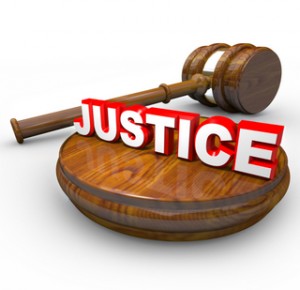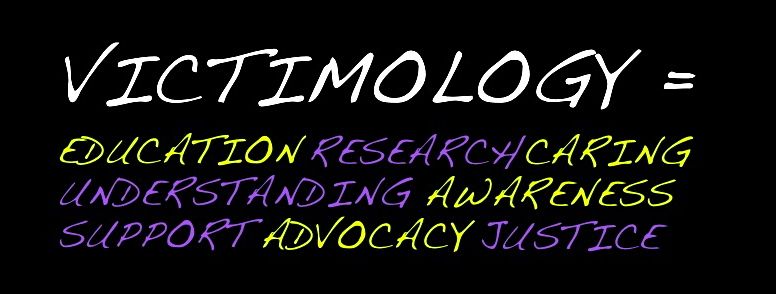In this article, Pramit Bhattacharya, Student, Damodaram Sanjivayya National Law University, Visakhapatnam, writes about the concept of Victimology, the scope of Victimology and how it is important to focus on the victim as well, apart from the offender. The article also focuses on the contribution of the United Nations towards the concept of Victimology and the role of the Indian Constitution is also highlighted when talking in the Indian context.

Crime is a social phenomenon. No matter how strong is the criminal justice system, no matter which country or area it is, no matter how severe the punishments are, crime do take place thin the society. Whenever any crimes take place in the community, most of the discourse and discussion pertains to the criminological aspect of the crime. People often talk about concepts like mens rea and actus reus. However, it is critical that with the criminological dimension of the crime, the concept of victimology is also given due focus and attention.
“The history of crime and punishment in the whole civilized world reveals a steadily increasing concern with the treatment of criminal and a virtual blackout of attention to the situations of the victim.”[1]
A byproduct of any crime in the society is the victim. The ironic thing is that the victim remains the forgotten party, for whose remedy at the first place the whole system was established. Almost half a decade ago Justice Benjamin Cardozo spoke about the plight of the victims saying that “justice” is due to the accused, but it is due to the accuser also. The work of the Criminal Justice System is to maintain that balance of justice. But even so, crime victims are seldom treated justly.
What is Victimology?
The term “Victimology” was first used by French lawyer Benjamin Mendelsohn in the year 1947.[2] Victimology is the study of a crime from the point of view of the victim or the sufferer. A varied view exists as to what should come under the concept of Victimology. Some people are of the view that victimology is a subfield of Criminology itself. Another view is that victimology should be considered as a separate field of inquiry, independent in itself. One more question which is posed now and again is, what is the scope of victimology and how many victim related concepts can be placed under victimology. Some people are of the view that only the relationship between a victim and the offender should fall within the scope of victimology. Others believe that apart from the relationship between the victim and the offender, concepts like needs of the victim, the function of the institution which respond to these needs and the role of a victim should also fall within the purview of victimology. One more issue which has not been given the attention it deserves is the breadth of the definition of term “victim.” One approach is to limit the definition to victims of only traditional crimes like rape, murder, robbery, etc. Others believe that since the field is specifically focusing towards the victims, the definition should be broader which even covers various groups like immigrants, prisoners, people who are charged with a crime but proved guilty, prisoners, etc.
The concept of victimology is rather new in the realms of the legal field. One of the major roles of victimology is to increase the understanding regarding impacts of a crime on a victim. The aim of this field is to study the crime in a manner which gives importance to responsibility and role of the victim and his offender.
Today, the definition of a victim more or less includes any person who suffers any loss or injury due to the action of any other person. The exact meaning of victimology can be said to be the relationship between the victim and the offender.
According to Viano, there are several terms which are related to the victims and as a whole to victimology.[3]
- Victimhood- the state of being a victim
- Victimization- the action of victimizing a person
- Victimizer- the offender or the person who victimizes other
As victimology is the relation between the offender and the victim, there can be two major sub-areas in the field of victimology.
- The first is based on the nature of the relationship between the victim and the offender and it relates to the scientific study criminal behavior.
- The other sub-area deals majorly with the role of the system of compensation and restitution to the victim.
Scope of Victimology
Shinder, 1982– “…it investigates the relationship between the offender and the victim in crime causation. It deals with the process of victimization, of becoming a victim, and in this context directs much of its attention to the problem victim-offender, sequence, i.e., the question of whether or not victimization can have criminogenic effects or can encourage crime”.[4]
The definition given above makes it amply clear that the primary focus is on the victim. They are predominant figures in the field of the study. The main subject matter of the study of victims is the legal relationship which the victim has with the legal system of the country. Victimology has come of age. At least in words, the needs and rights of the victims are being acknowledged, if not in deeds. The victims have been in most cases been used as a political tool depending on the circumstances in which the crime was committed. But in a very short time, the concept of victimology has gained momentum and moved from the field of a few pioneers to the glittering chambers of the United Nations.
United Nations’ Contribution in the Field of Victimology
United Nations was constituted to maintain peace and protect human rights all over the world. Furthering the very same purpose, the United Nations has contributed a lot, to protect the human rights of the victims.  From time to time, the UN has reminded the world that the victim also is a major part of the Criminal Justice System by calling for regular Conventions and Declarations. One of the significant step forward in the area of victimology in the last couple of decades was the approval of the “UN Declaration of Basic Principles of Justice for Victims of Crime and Abuse of Power” by the General Assembly on the 11th of November, 1985.[5] The broadest definition of a “victim” has been provided for in para 1 and 2[6] of the Declaration which states that victims are not only those who suffer any loss or injury, but victims also include dependents and family of the direct victim of the crime and also any person who has himself suffered any injury while trying to help and aid the victim or to prevent the victimization of the victim. Following rights have been granted to the victims of crime under the Declaration:
From time to time, the UN has reminded the world that the victim also is a major part of the Criminal Justice System by calling for regular Conventions and Declarations. One of the significant step forward in the area of victimology in the last couple of decades was the approval of the “UN Declaration of Basic Principles of Justice for Victims of Crime and Abuse of Power” by the General Assembly on the 11th of November, 1985.[5] The broadest definition of a “victim” has been provided for in para 1 and 2[6] of the Declaration which states that victims are not only those who suffer any loss or injury, but victims also include dependents and family of the direct victim of the crime and also any person who has himself suffered any injury while trying to help and aid the victim or to prevent the victimization of the victim. Following rights have been granted to the victims of crime under the Declaration:
- Access to
 Justice and Fair Treatment- It is stated that the victim should be treated in a dignified manner, and they have the right to speedy remedy and justice under the laws of the nation. It is also essential to provide proper information to the victim regarding his role, scope, and progress of the proceeding of their case. It is also important to note the concerns and the views of the victim without being prejudicial to the accused. The victim should also be given all the necessary legal aid during the ongoing proceedings. Ensuring safety and protecting the privacy of the victim has also been given due attention.
Justice and Fair Treatment- It is stated that the victim should be treated in a dignified manner, and they have the right to speedy remedy and justice under the laws of the nation. It is also essential to provide proper information to the victim regarding his role, scope, and progress of the proceeding of their case. It is also important to note the concerns and the views of the victim without being prejudicial to the accused. The victim should also be given all the necessary legal aid during the ongoing proceedings. Ensuring safety and protecting the privacy of the victim has also been given due attention. - Restitution- Any third-party or offender who is responsible for the predicament of the victim should provide restitution to the victim and his/ her dependents. The Government should also consider the concept of restitution as a method of punishment, apart from other forms of sanctions.
- Compensation- Sometimes, the offender cannot fully restitute the victim for his losses. In such cases, the government should seek to provide some monetary compensation to the victim and his dependents, who are also affected, so that the victim can start a new life without any further problems. The state should set up a separate fund, which is specifically for the victim.
Compensation under the Indian Constitution
The Apex Court has continuously interpreted the Constitution of our country in a way to protect life and liberty of people and uphold their rights in the society. One of the most important Articles of our Constitution is Article 21. It has been interpreted in numerous ways by the Courts in India. The Supreme Court has interpreted Art. 21 in a manner which also includes compensation to victims under its purview. In a landmark case, the Supreme Court suggested that the National Commission for Women should come up with a new scheme which provides a compulsory compensation to victims of sexual offenses.[7]
The Law Commission of India has also supported the concept of compensation to victims, through its many Law Commission reports like the 142nd, 144th, 146th, 152nd, 154th, and the 156th Report, which are of prominence in the field of victimology and victim compensation. Following various judicial pronouncement and Reports, the legislature added Section 357A to the Code of Criminal Procedure Code in the year 2009.[8] In its 42nd Report, the Fifth Law Commission dealt with three patterns of compensating a victim of crime as reflected in the Criminal Codes of countries like Germany, France, and Russia. The three patterns are:
- Compensation by the State.
- Compensation by the offender by imposing some sanctions.
- Duty to repair the damage caused by the offender, i.e., restitution.
The concept of Victimology is gaining importance in the field of Criminal Justice System slowly but surely. The Judiciary and the Legislature also need to put in a little more efforts to help the growth of the concept, because though rules and provisions exist, the plight of the victims, not only in India but all over the world has not improved much (especially in underdeveloped and developing countries). The victim is scarred for life as their position in the society changes due to the impact of the crime. It is the state’s duty to counter-balance the sufferings of various victims all over the country. If the status of victims is alleviated, it would be the first step in the reduction in crime and hence will lead to a certain amount of control over the crimes.
[divider]
Footnotes:
[1] Michael Fooner, Victim Induced Criminality, science, vol 153.
[2] VN Rajan, Victimology in India, Ashish publication house
[3] Viano, Emilion C, Victimology: The study of victim: An International Journal, vol 1, no1
[4] http://www.lawctopus.com/academike/victimology-emerging-trends-compensation/
[5] http://www.un.org/documents/ga/res/40/a40r034.htm
[6] https://www.unodc.org/pdf/compendium/compendium_2006_part_03_02.pdf
[7] Delhi Domestic Working Women’s Forum Vs UOI, (1995) 1 SCC 14.
[8] Victim compensation scheme – http://www.lawzonline.com/bareacts/Criminal-procedure-code/section357A-Code-of-criminal-procedure.htm
 Serato DJ Crack 2025Serato DJ PRO Crack
Serato DJ Crack 2025Serato DJ PRO Crack









 Allow notifications
Allow notifications


